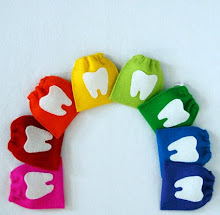“A pediatric dentist's average day in the office includes a number of encounters with children who are initially not cooperative. Sometimes this uncooperative behavior is a result of a child being anxious in a new and foreign environment. Other times it is simply a child manifesting some recently appreciated control in their lives.”
Fear of the unknown is usually handled quite easily using several basic behavior guidance tools.
Tell/Show/Do: A technique that involves explanation of procedures in age-appropriate levels (Tell), demonstration of the procedure in a carefully defined, nonthreatening setting (Show) and then without deviating from the explanation and demonstration, completion of the procedure (Do).
Positive Reinforcement: Positive feedback is used to reward desired behavior and strengthen the recurrence of these behaviors.
Modeling: A technique that involves allowing children to observe activities that are new to them by watching other more experienced children engage in these activities.
“Children who have discovered they have some control in their lives and are resistive to their parent’s direction and instruction can be a more challenging issue. A term that I've found to be extremely useful in these situations is "cheerful persistence." First of all, parents need to be positive and keep a smile on their face when working with their child. Parents give many nonverbal cues to their children. If you go into a tooth-brushing session looking like you're going to war, more than likely it will be just that! Secondly, oral hygiene is something that works only if it is undertaken on a regular basis. Therefore, daily brushing is a must. Avoiding tooth brushing because of the potential for a clash between a child and parent dramatically increases the potential for development of dental cavities."
-quoted by AAPD President Dr. William C. Berlocher (2009-2010)
